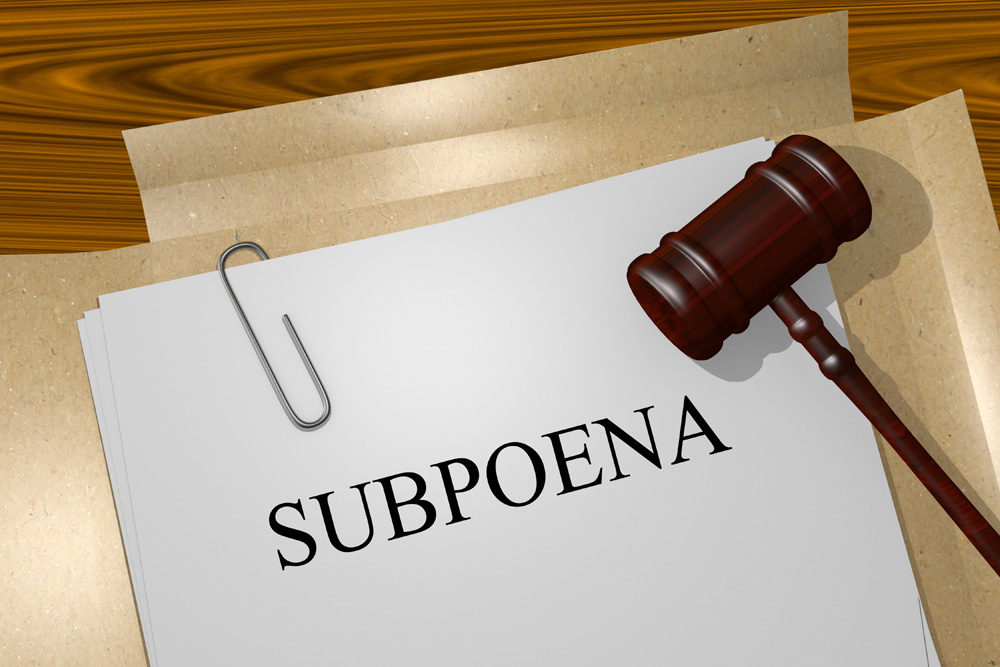
Receiving a state or federal subpoena may be stressful and scary, and many individuals may be tempted to ignore it altogether. If you ignore a subpoena, you may face substantial consequences such as expensive fines, a warrant for your arrest, and even possibly time behind bars. If you have been served a subpoena in Minnesota, it is essential to understand your rights and legal options. Fortunately, a skilled attorney can guide you through this stressful process and help you comply with the subpoena and the law.
At Knutson + Casey, our dedicated attorneys have more than 30 years experience in protecting our client’s rights and interests in Minnesota. If you have been issued a subpoena, our attorneys want to help you understand your rights so you may make an informed decision about how to handle it. We pride ourselves on taking a personalized approach to every case and will consider your unique circumstances when reviewing your legal options.
Table of Contents
A subpoena is a request issued by the state or federal government to appear in court to either testify, or produce certain documents. Since the government issues subpoenas, there are steep penalties for refusing to comply. Once you are served a subpoena, you are legally obligated to respond. However, you do have options as to how you respond. A few legal options include the following:
When you are issued a subpoena, the government hopes you will comply fully with their request. By complying completely, you will testify without holding anything back or produce all requested documents. Total compliance may be the best option if you are not the person under investigation and the information requested is not confidential or protected. An experienced attorney will review your situation and help you decide if this is the best option to pursue, and help you comply with the law.
Despite being issued with a subpoena, you may withhold any documents or information that meet the following requirements:
In other words, the government cannot compel you to share any information you have shared with your attorney or that violates your 5th Amendment right to protection from self-incrimination. If you believe you have any documents or other information that should be legally withheld, a trusted attorney will analyze your information and help you determine how to protect yourself while complying with the law.
You may have legal grounds to challenge the subpoena, depending on your circumstances. However, your ability to challenge the subpoena depends heavily on the type of subpoena you were served and the government agency that issued it. While in some cases, you may be able to file a motion to challenge the subpoena directly, others dictate that you first meet with the investigating agents. A skilled attorney can help you decide if a challenge is prudent and devise a clear path forward.
After receiving a subpoena from the government, discussing your options with an experienced attorney is essential. At Knutson + Casey, our attorneys are committed to protecting our client’s rights, interests, and freedoms. We have a proven track record of helping our clients navigate federal and state-level legal systems successfully. When you partner with us, rest assured that your case is in the skilled hands of a seasoned legal professional.
To discuss your legal options with a trusted attorney, schedule a free consultation today by calling (507) 344-8888 or completing our contact form.